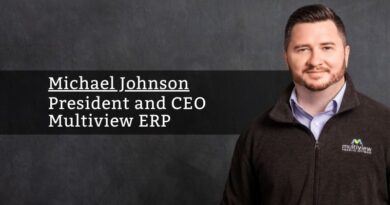The Vital Confluence: ERP in Healthcare’s Lifeline
By Tomas Gregorio, SVP & CIO, Care New England
In an era where every industry is harnessing the powers of integration and technology, healthcare stands at a pivotal crossroads. The delicate interplay of finance and human resources has always been crucial. Taking a journey through time, the insights of experts, and real-life applications, we unravel the symbiotic harmony of finance and HR, now further enhanced by the introduction of Enterprise Resource Planning (ERP) systems. By the dawn of the 20th century, large healthcare institutions began incorporating structured finance and HR frameworks, planting the seeds of an intertwined future.
Now, introduce ERP into this intricate tapestry, and the possibilities multiply. Especially the financial modules of ERP have emerged as powerhouses, enabling healthcare institutions to retain their economic backbone while ensuring unparalleled patient care. These are the most common financial healthcare ERP modules,
- Budgeting and Forecasting
- Cost Accounting
- Financial Analytics and Reporting
- Asset Management
- Payroll and Compensation Management
- Supply Chain and Inventory Management
- Financial Integration with Other Departments
ERP systems provide the tools and insights necessary for healthcare institutions to operate efficiently and profitably. As the healthcare landscape continues to evolve, leveraging the power of ERP in financial management will be indispensable for institutions striving for excellence in both care and operations.
Modern ERP systems, recognizing the specific challenges faced by healthcare institutions, offer HR modules tailored to address the below concerns
- Recruitment Management
- Training Modules
- Attendance and Shift Management
- Performance Management
- Compliance and Certification
ERP’s HR modules provide panoramic solutions to human resource challenges. They facilitate efficient recruitment processes, keep training modules updated, and ensure alignment with institutional objectives. Hospitals globally have benefited from ERP-driven HR transformations, adjusting to cultural, economic, and technological nuances.
The journey through the healthcare ERP modules highlights a crucial point in technology’s role in marrying financial sustainability with HRM and exceptional patient care. As we advance into a future where healthcare faces unprecedented challenges and opportunities, ERP systems’ efficacy and indispensability will be undeniable. Embracing them is not just a strategic move; it’s a commitment to ensuring healthcare’s heart continues to beat strongly and efficiently.
In this ever-changing arena, ERPs stand as beacons, assisting institutions in navigating the tricky waters of finance, HRM, and patient care
Among the leading names in this domain are Workday, Oracle, and Infor. Let’s delve into each system, comparing and contrasting their features, strengths, and market niches.
1. Overview:
- Workday: Originally known for its Human Capital Management (HCM) solutions, Workday expanded its offerings to finance, planning, and analytics. It emphasizes cloud solutions, targeting medium to large enterprises.
- Oracle: Oracle’s ERP Cloud covers a vast terrain from financials, project management, procurement, risk management, and other core functions. Oracle is suitable for businesses of all sizes.
- Infor: With a focus on specific industries, Infor offers tailored ERP solutions that cater to the nuances of sectors like manufacturing, healthcare, public sector, and hospitality, among others.
2. Deployment & Architecture:
- Workday: Cloud-native, Workday promotes ease of use and offers a consistent UI across all devices.
- Oracle: While Oracle ERP Cloud is its flagship offering, Oracle still supports on-premises solutions and hybrid deployments.
- Infor: Infor CloudSuite is their primary cloud ERP but, like Oracle, Infor supports on-premises and hybrid environments, especially for some industry-specific solutions.
3. Scalability & Customization:
- Workday: Highly scalable, it is designed for rapidly evolving businesses. Its platform allows for some customization to meet specific enterprise needs.
- Oracle: Oracle ERP Cloud offers both scalability and a high degree of customization, leveraging Oracle’s vast suite of tools and extensions.
- Infor: Particularly strong in customization, given its industry-focused approach. The ERP solutions can be scaled and molded to fit very particular enterprise requirements.
4. User Interface & Experience:
- Workday: Known for its user-friendly interface with intuitive design, providing a seamless experience across its suite of applications.
- Oracle: The interface is modern and user-friendly, but given the system’s vastness, there might be a steeper learning curve.
- Infor: Provides a visually appealing and customizable interface with its Infor OS (previously known as Mongoose) platform.
5. Integration Capabilities:
- Workday: Uses web services and APIs for integration. It also offers Workday Cloud Platform for developing custom integrations.
- Oracle: Boasts a wide array of integration tools and extensive APIs to ensure seamless integration with both Oracle and non-Oracle products.
- Infor: Infor ION is a middleware platform that facilitates smooth integration between Infor and third-party applications.
6. Pricing:
- Workday: Pricing is subscription-based, factoring in the number of modules used and the size of the organization.
- Oracle: Offers both subscription and license-based pricing models. Costs can vary widely based on deployment method, modules chosen, and business size.
- Infor: Pricing is generally module-based and can be tailored to the industry and the specific solutions chosen.
7. Industry Presence:
- Workday: Has a strong presence in sectors that need robust HCM solutions, such as technology, service industries, and education.
- Oracle: With its comprehensive suite, Oracle caters to a broad spectrum of industries, including finance, healthcare, manufacturing, and retail.
- Infor: Known for its industry-specific solutions, Infor has a pronounced presence in sectors like manufacturing, distribution, and healthcare.
While Workday, Oracle, and Infor all offer robust ERP solutions, choosing between them often hinges on specific enterprise needs. Workday shines in HCM and cloud-native solutions. Oracle, with its vast and comprehensive suite, is suitable for those seeking an all-encompassing solution with deep customization. In contrast, Infor’s strength lies in its industry-specific solutions tailored to unique sector needs. Decision-makers should assess their organizational priorities, growth trajectory, and specific industry requirements when selecting between these ERP giants.
In this ever-changing arena, ERPs stand as beacons, assisting institutions in navigating the tricky waters of finance, HRM, and patient care. By amalgamating financial and HR functions, ERPs provide a cohesive platform for administrators to envision the bigger picture and drive their institutions towards excellence, both in patient care and operations.



